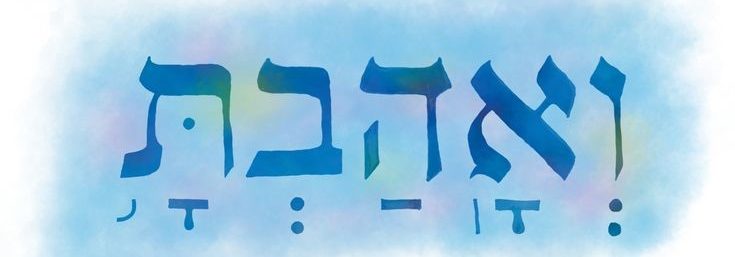Continuing the theme of the previous Tefillah Tuesday post: shibbush [“error”] happens. There will always mistakes, shortcomings, distraction, and extraneous thoughts in davening. Nobody is perfick.
Today, we’ll turn to Chazal, the Talmudic-era sages, for a reflection on that age-old problem of davening while not knowing Hebrew very well. While scholars through the ages – as well as Israelis and Hebrew-speakers today – could be comfortable with the holy tongue, most Jews in synagogues didn’t know what all the words meant, nor what malaprops they might mistakenly stumble over.
In an ancient midrash [Song of Songs Rabbah 2.4.1], Rabbi Acha imagines (or recounts) a simple Jew in synagogue trying to say Shema and Ve’ahavta. But this simple Jew doesn’t know all the words, and he makes one tiny mistake, switching two very similar letters, substituting yod for hey. This is not hard to do, since these letters are both “weak,” not stressed consonants. Innocent mistake! Problem is, this changes the meaning from ואהבת/ve’ahavta, “and you shall love the Lord your God,” to ואייבת/ve’ayavta, “and you shall hate the Lord your God.” Say those two words aloud and you will hear how close the pronunciations actually are. But one tiny letter, or the small difference in the opening of your larynx, or perhaps even the tiny variation in accent between Jews from two towns, yields a very big difference in meaning.
I can imagine Rabbi Acha’s scholarly colleagues growing irritated in synagogue as they heard their less educated kinsfolk butchering their prayers. How it must have grated on the rabbis’ ears to hear the wagon-driver or ditch-digger enthusiastically declaiming the mitzvah of hating the Lord!
Rabbi Acha comes to the rescue, with an ingenious midrash containing a rich theological golden nugget. He invokes Song of Songs 2.4, along with a bit of word play. The verse says: ודגלו עלי אהבה/ve’diglo alay ahavah/“His banner above me is love.” As the Sages love to do, R. Acha tinkers with letters to yield a new meaning. Do not read דגלו/diglo/“His banner” is love, he says. Instead read it asדילוגו/dilugo/“his omission” or “his stumble” is transformed into love.
The original verse has the female voice in the Song of Songs praising her gallant suitor. But in R. Acha’s creative misreading, the speaker is now God, who says this kind word about the clueless davener. The Blessed Holy One says: when you trip over the words of the prayer book, when you make a ludicrous malaprop, saying “hate” when you meant to say “love,” don’t worry. I will transform your mispronunciation back into love, the way it should be.
I imagine R. Acha giving this drash to two audiences. He reassured the simple and, yes, ignorant people that God loves their whole-hearted mistakes, and knows how to extract the graceful prayer from the awkward stumble. So give yourselves a break. Do your best, send your prayers to heaven, and let God fix your little mistakes. You may sound like a fool to the scholarly Jew next to you, but you sound like Shakespeare to God. And to his fellow scholars, R. Acha reminds them to listen generously, as Hashem does, to find love hiding in garbled words.





